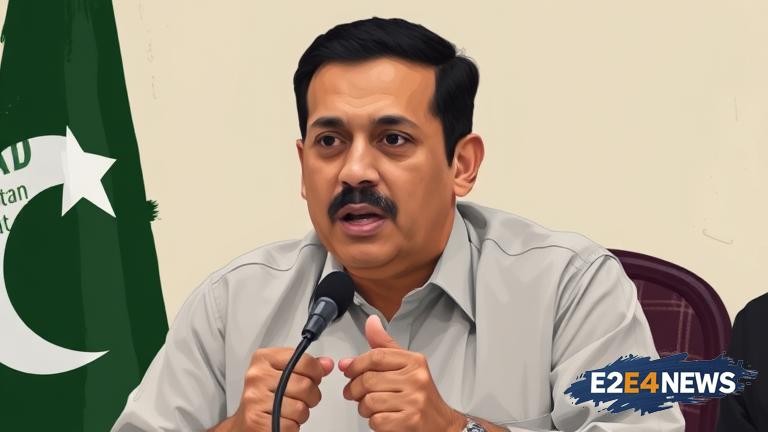Federal Minister Ali Amin Gandapur has walked back his recent remarks on military operations, which had sparked a heated debate on civil-military relations in Pakistan. The minister’s initial statement had suggested that the military should not be involved in internal security operations, a stance that was met with criticism from various quarters. However, in a subsequent clarification, Gandapur stated that his words were taken out of context and that he had always supported the military’s role in maintaining national security. The controversy surrounding Gandapur’s remarks has highlighted the sensitive nature of civil-military relations in Pakistan, where the military has historically played a significant role in shaping the country’s politics and security policies. The incident has also sparked a debate on the need for greater clarity and coordination between civilian and military institutions in Pakistan. Meanwhile, opposition parties have seized on the controversy to criticize the government’s handling of national security issues. The Pakistan Tehreek-e-Insaf (PTI) party, which is led by former Prime Minister Imran Khan, has accused the government of trying to undermine the military’s role in national security. On the other hand, the government has defended its position, stating that it is committed to supporting the military’s efforts to maintain national security. The controversy has also raised questions about the role of social media in shaping public discourse on sensitive issues like national security. Gandapur’s initial statement had been widely shared on social media, where it was met with both criticism and support. The incident has highlighted the need for greater responsibility and caution in public discourse, particularly on issues that are sensitive and potentially divisive. In recent years, Pakistan has faced numerous security challenges, including terrorism and sectarian violence, which have required a coordinated response from civilian and military institutions. The country’s military has played a key role in combating these threats, and its efforts have been widely acknowledged by the international community. However, the military’s involvement in internal security operations has also raised concerns about the potential for human rights abuses and the need for greater accountability. The government has stated that it is committed to upholding human rights and ensuring that all security operations are conducted in accordance with the law. The controversy surrounding Gandapur’s remarks has also sparked a debate on the need for greater transparency and accountability in Pakistan’s security sector. Opposition parties have called for greater parliamentary oversight of security policies and operations, while the government has defended its position, stating that it is committed to supporting the military’s efforts to maintain national security. The incident has highlighted the complex and often contentious nature of civil-military relations in Pakistan, where the military has historically played a significant role in shaping the country’s politics and security policies. The controversy has also raised questions about the role of politicians in shaping public discourse on sensitive issues like national security. Gandapur’s initial statement had been widely criticized for being irresponsible and inflammatory, and the incident has highlighted the need for greater caution and responsibility in public discourse. The government has stated that it is committed to supporting the military’s efforts to maintain national security, while also upholding human rights and ensuring that all security operations are conducted in accordance with the law. The controversy surrounding Gandapur’s remarks has sparked a heated debate on civil-military relations in Pakistan, with opposition parties calling for greater transparency and accountability in the security sector. The incident has highlighted the need for greater clarity and coordination between civilian and military institutions in Pakistan, and has raised questions about the role of social media in shaping public discourse on sensitive issues like national security.
